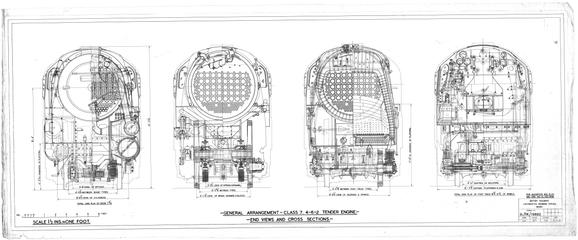
British Railways Board
The British Railways Board was an independent statutory corporation responsible for running the British railway network from 1963. It was established by the Transport Act 1962, which abolished the British Transport Commission and divided its undertakings between five newly-created bodies: the British Railways Board, the British Waterways Board, the British Transport Docks Board, the London Transport Board, and a Transport Holding Company. The British Railways Board was responsible for running the railway network, as well as managing government-owned railway hotels. Members of the British Railways Board were also appointed by the Minister for Transport. The first Chair of the British Railways Board was Dr Richard Beeching.
The British Railways Board operated through regional boards, which were responsible for regional sections of the railway network. These regions were Southern, Western, London Midland, London and North Eastern, Eastern, and Scottish. Members of these regional boards were appointed by the British Railways Board, in consultation with the Minister for Transport. The British Railways Board also operated a series of committees to manage every aspect of railway control, including committees for finance, technical, works and property. These committees were frequently reorganised throughout the life of the British Railways Board, under both different Chairs of the Board and different governments.
Several changes occurred during the 1960s. The Board had two new Chairs; Stanley Raymond, who replaced Richard Beeching in 1965, and his successor Henry Johnson, who became Chair in 1967. In 1968, the Transport Act transferred the control of the Sundries and Freightliner divisions from the British Railways Board to National Carriers Ltd and Freightliners Ltd. The Board retained a forty-nine per cent stake in Freightliners Ltd.
During the 1970s, the British Railways Board created several subsidiary companies which were to manage some of its undertakings. These included British Transport Hotels Ltd, British Rail Engineering Ltd, and British Rail Hovercraft Ltd. Many of these subsidiary companies were sold under the Conservative governments of the 1980s. There were also two new Chairs during this time. Richard Marsh replaced Henry Johnson in 1971, and Peter Parker became chair in 1976.
The privatisation of the British rail network during the 1990s radically changed the role of the British Railways Board. The Transport Act 1993 established Railtrack, a publicly-owned company. The Act transferred the ownership of track and railway infrastructure from the British Railways Board to Railtrack, in addition to the control of signals. Railtrack also replaced the British Railways Board as the body responsible for track investment and maintenance. The British Railways Board remained in existence after these changes, but only performed residual functions relating to pensions, liabilities, and non-operational railway land. The Board also continued to operate the British Transport Police service.
The British Railways Board was abolished by the Transport Act 2000, which transferred the remaining functions of the Board to the newly-created Strategic Rail Authority.